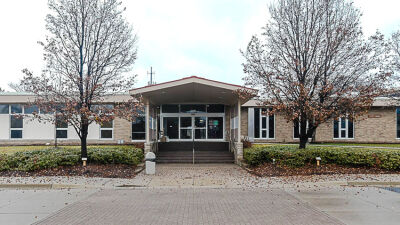MADISON HEIGHTS — The city of Madison Heights has requested a federal grant to continue funding one of its two full-time code enforcement officers, as well as sidewalk improvements and a lawn-cutting service for eligible residents.
The request was made through the U.S. Department of Housing and Urban Development’s Community Development Block Grant Program. Cities submit applications to Oakland County and the county then combines them into a single submission to HUD.
Approval typically takes more than a calendar year. Madison Heights has consistently sought and received CDBG funds in recent years.
“The city manager, Melissa Marsh, and her staff do a wonderful job finding and writing grant applications that get us all of these monies to help improve the city,” said Madison Heights City Councilman David Soltis.
For the 2024 program year, the city has requested aid in three areas: code enforcement, for $50,000; sidewalk improvements, for nearly $67,800; and a lawn-cutting service, for about $20,600.
The lawn-cutting service is for income-qualifying senior citizens and those with disabilities. They can call the Active Adult Center at (248) 545-3464 to sign up for the service, which usually begins in April. The city has also maintained a minor home repair program through CDBG for items such as driveways, porches, windows and siding.
The sidewalk improvements would include items such as new trash bins, benches, bike racks and trees. The city intends to make those improvements along 11 Mile Road between Stephenson Highway and Lorenz Avenue.
As for code enforcement services, CDBG funding covers one of the two full-time staffers there. Giles Tucker, the community and economic development director for the city of Madison Heights, said that the funding is vitally important.
“Eliminating and mitigating blight is a significant part of ensuring the quality of life for our residents and the attractiveness of our business corridor for future investment,” Tucker said via email. “Without this funding, we would only have one code enforcement officer to cover the entire city, and in my opinion, there would be a very noticeable significant increase in blight in our neighborhood and our business districts.”
The city has had some leftover CDBG funds each year since 2020, when a previous code enforcement officer retired, and his replacement was hired in at a different wage and benefits level. The city has until this April to spend those leftover funds meant for code enforcement, so in late November, the council authorized a request to Oakland County, asking them to reprogram $50,000 to the city’s minor home repair account, which the county approved.
Tucker said the CDBG program has been very impactful for Madison Heights.
“The CDBG funding we receive from our partners at Oakland County, and ultimately from HUD, has a tremendous effect on the quality of life for our residents,” he said. “The lawn-cutting service helps our seniors stay in their homes, and ensures our neighborhoods remain well-kept. Code enforcement not only helps eliminate blight, but it also helps staff identify potential minor home repair projects. All of these programs help stabilize our neighborhoods, maintain property values, and contribute to the high quality and affordable quality of life that Madison Heights offers its residents.”
Mark Bliss, the mayor pro tem, said the CDBG program is another example of the council and city staff remaining “hyper-focused” on securing more revenue through grants.
“The city’s resources are finite — there is only so much money available to us. So it really helps any time we can get grants for services, staffing, repairs or brand-new structures that otherwise wouldn’t be possible,” Bliss said. “I think the city’s focus on generating grant revenue has really helped us implement quite a few things residents have wanted, or expedited the schedule for them. When I joined council (in 2013), grants were few and far between, but (City Manager Melissa Marsh) and her team have done incredible work putting us in the best position to win these. It’s been a huge boost for the city.”
In an email, Madison Heights Mayor Roslyn Grafstein said, “Many of our residents are feeling the financial burden of higher costs. I am glad that we are able to tap into these funds to offer some assistance for services they might otherwise be unable to afford … providing both practical and aesthetic benefits for our community.”
 Publication select ▼
Publication select ▼



























